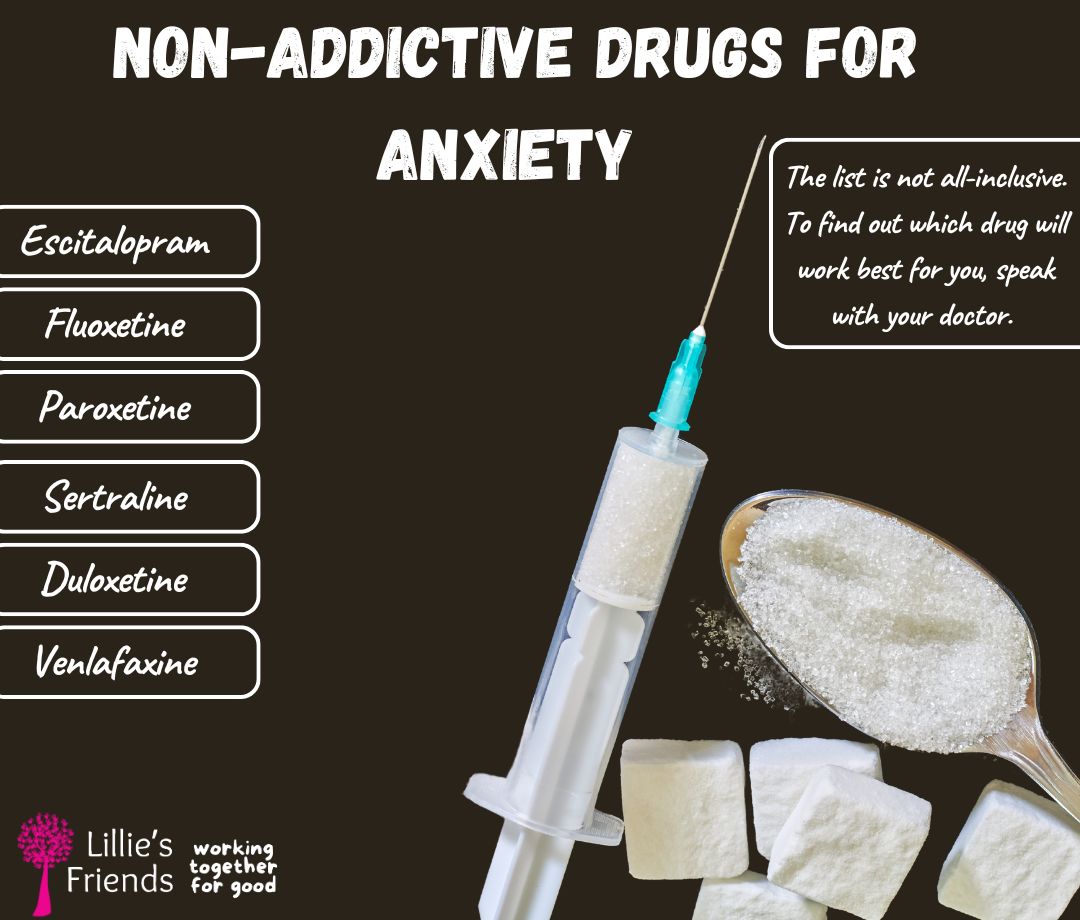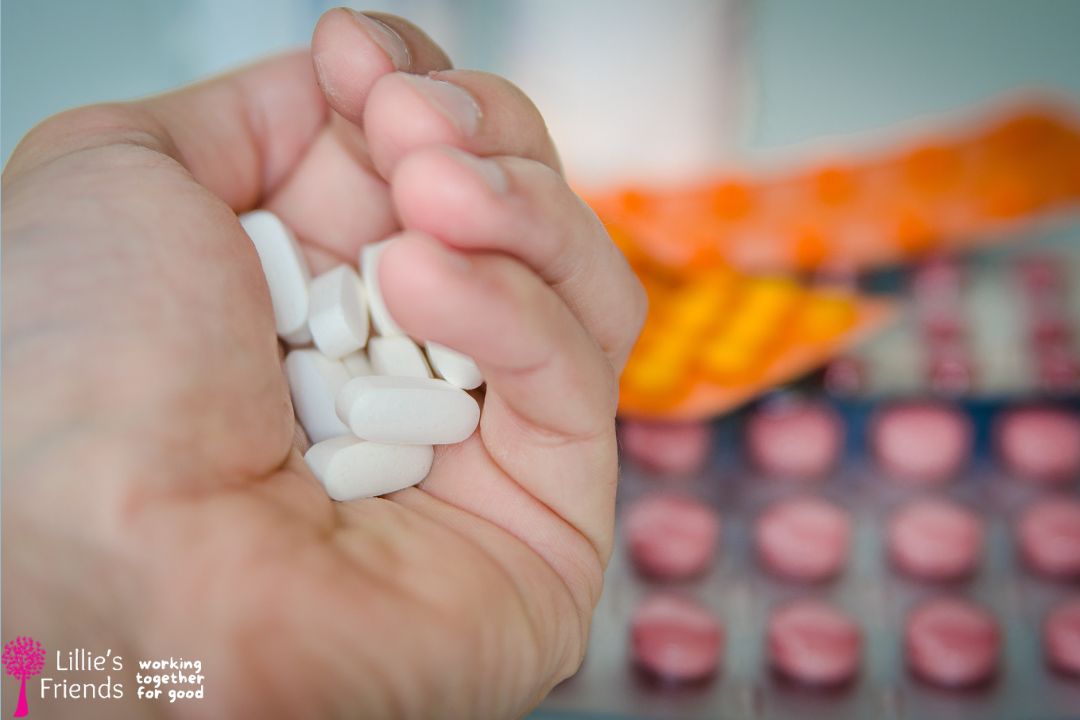Medical Disclaimer
The medicines listed on this website are only there to give you knowledge. Just because they are on the list doesn’t mean that anyone will be given them; in the end, treatment decisions are up to the healthcare workers. The medicines on this list are not all of them. Doctors may recommend other drugs, even ones that don’t contain stimulants, depending on the patient’s specific health needs and circumstances.
A wide range of pharmaceuticals are classified as anti-anxiety meds. They can be used for both short-term and long-term therapy, depending on how severe and persistent the symptoms are. Certain medications can be addictive, and even when they improve a person’s health, they may also have negative impacts and other consequences.
Perhaps you’re not sure if taking anxiety drugs is the best course of action. Read the most current blog post to find out if anxiety medications are addictive or not.
Can Anxiety Drugs Lead to Addiction?
These medications are intended to calm the body’s neurological system, which combats anxiety. Therefore, prolonged use of some anxiety medications (anxiolytics, also known as light tranquilizers) changes the structure of the brain, increasing tolerance and the risk of addiction.
Compared to other anxiety medications, some are more likely to cause habit formation and addiction. Benzodiazepines, for example, are medications used to treat severe anxiety and panic attacks. Compared to people using alternative anxiety medications, individuals who use benzodiazepines are at a significantly higher risk of developing an addiction↗. There may be a propensity to take more medicine to have the intended effects if benzodiazepines are not taken as prescribed and the patient is not feeling the required effects.
Benzos increase the effects of gamma-aminobutyric acid (GABA), a neurotransmitter that slows down the central nervous system. This method produces calming, peaceful effects that help people feel less anxious. Benzodiazepines are generally seen to be safe and beneficial in the short term, but if used improperly, they can eventually become a habit.
Please reach out to your doctor promptly if you suspect you might be developing an addiction to your anxiety medication.
Addictive Anxiety Medication
Although there are many other types of anti-anxiety drugs, the ones listed here are some of the most commonly prescribed and misused. Because they start working quickly—usually offering relief in 30 to 90 minutes—they are sometimes referred to as fast-acting anxiety drugs.
- Xanax (Alprazolam). It is one of the most often prescribed benzodiazepines in the United States and is classified as a Schedule IV↗ drug. It treats generalized anxiety disorder, phobias, and panic disorders. Calmness and relaxation are the results of this central nervous system depressant.
- Clonazepam (Klonopin). This prescription benzodiazepine is used to treat seizures, anxiety, and panic attacks. This Schedule IV drug creates feelings of calm and relaxation, but it can also lead to excitement and hallucinations. It can become addictive even after brief use.
- Diazepam (Valium). As reported by the DEA↗, it is among the top five benzodiazepines prescribed in the United States. Because of its soothing properties, this Schedule IV drug is used to treat anxiety, alcohol withdrawal, and seizures. The sedative effects of the medication typically last 6 to 8 hours and start to take action 30 to 60 minutes after a dosage. Because Valium is physically and psychologically addictive, it can be far more dangerous when used excessively or in combination with other medications or alcohol. It can even result in an overdose.
- Ativan (lorazepam). Because of its significant potential for addiction, this “medium-duration medication” for anxiety linked to depressive symptoms is often given for no more than four months. Don’t use Ativan for longer than prescribed, and never take more than is advised. You run the danger of abusing the drug and becoming physically or mentally dependent if you do.
Signs of an Addiction to Anxiety Drugs
Some signs of an addiction to anxiety medications include the following:
- Exceeding the suggested dosage to achieve the desired result.
- Getting more drugs illegally, for example, by getting several prescriptions or from a dealer.
- Having withdrawal symptoms if the drug is not taken.
- Having a strange feeling prior to taking the drug.
- Experiencing negative effects from medicine on one’s activities, life, and career.

Non-addictive Drugs for Anxiety
Because they don’t produce euphoria, certain effective anti-anxiety medications don’t have the potential to become addicted. The following anxiety drugs are among the alternatives to benzodiazepines that have a lower potential for addiction:
- SSRIs. A common class of antidepressants↗ that are used to successfully treat depression and anxiety are selective serotonin reuptake inhibitors. They work by increasing serotonin, a neurotransmitter that controls mood. Among the medications that fall within this category are sertraline, fluoxetine, paroxetine, and escitalopram. SSRIs frequently don’t cause addiction and have minimal serious side effects.
- SNRIs. Norepinephrine reuptake inhibitors, like selective serotonin reuptake inhibitors (SSRIs), increase serotonin levels in addition to norepinephrine, which increases alertness and arousal and changes mood and concentration. Examples of this kind of medication include duloxetine, venlafaxine, and desvenlafaxine.
- Vistaril (Hydroxyzine): The fast-acting drug hydroxyzine↗ is incredibly effective in temporarily reducing anxiety. Sometimes sedation is a side effect, but it becomes better with continued use.
- Buspar (Buspirone): This non-addictive anxiety medication increases serotonin-related chemical messengers, making it similar to an SSRI. Because Buspar only targets one subtype of the serotonin receptor, it only has an impact on one specific area of your brain. As SSRIs affect more receptors, the number of adverse effects increases. There are fewer negative effects because Buspar targets one.
Conclusion
Addiction is a problem with several anxiety drugs. You can get the right care to overcome anxiety, regardless of the signs of addiction or pharmaceutical usage.











